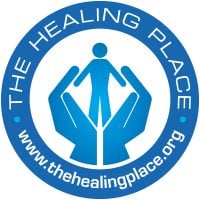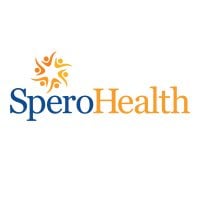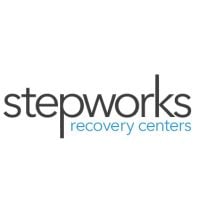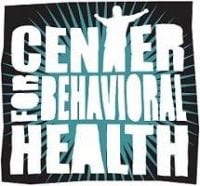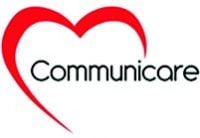The Healing Place - Campbellsville Campus
Drug Rehab Center in Campbellsville, Kentucky
The Healing Place - Campbellsville Campus is a 105-bed addiction treatment facility that provides detox, drug rehab, inpatient, outpatient, and aftercare support levels of care, and accepts private health insurance.
About The Healing Place - Campbellsville Campus in Kentucky
The Healing Place - Campbellsville Campus is a drug treatment facility located in Campbellsville, Kentucky. While the exact year of its founding is not specified, it is affiliated with The Healing Place, an organization dedicated to helping individuals suffering from alcoholism, opioid addiction, substance abuse, dual diagnosis, and drug addiction. Offering a 105 bed facility, The Healing Place - Campbellsville Campus provides various levels of care including detox, drug rehab (both inpatient and outpatient), and aftercare support. They accept private health insurance, making their services accessible to those with coverage.
The Healing Place - Campbellsville Campus offers a range of services and treatment methods to address addiction and substance abuse issues. Their dedicated team of professionals utilizes evidence-based approaches integrated with holistic approaches to support individuals in their recovery journey. Services offered at The Healing Place - Campbellsville Campus include detoxification to medically manage withdrawal symptoms safely. They provide rehabilitative programs tailored to meet each individual's needs by combining therapy (such as cognitive-behavioral therapy), counseling sessions (group and individual), educational workshops on addiction awareness and relapse prevention strategies, as well as addressing mental health concerns for those with dual diagnoses. Additionally, they offer extended support through aftercare programs once individuals complete their initial treatment program for continued guidance in maintaining sobriety and creating a sustainable life in recovery.
Genders
Ages
Modality
Additional
Conditions and Issues Treated
Substance abuse is the excessive use of any drug. This includes alcohol, medications, and illegal drugs. Substance abuse is treated with a combination of physical and mental treatments. Patients detox and follow up with therapies that target the underlying cause of the addiction. Substance abuse is a severe problem that can be successfully treated with a variety of therapies. The Healing Place - Campbellsville Campus treatment uses a combination of therapies along with other resources to overcome substance abuse.
Opioid addiction treatment should be done in a medically supervised drug rehab. While taking opioids, users will typically use other substances to enhance the effects of opioids or to reduce the adverse effects of opioid use. Opioid addiction treatment will include detoxification and drug rehab counseling to help both the user and their loved ones learn how to live a successful sober lifestyle.
Treatments such as methadone, buprenorphine, and naltrexone are three medications that can help treat opioid addiction. These drugs work on the brain’s pleasure center and reduce cravings and the effects of illicit opioids such as heroin. These drugs can be either given orally or by injection. Individual drug rehab counseling sessions can be helpful to discuss any questions or concerns with the drug treatment program. This counseling will also help the user set goals for when they finish drug rehab.
Opioid addiction recovery is a long process. Many of the changes to the brain caused by opioid use cannot be undone, but with time and the proper treatment, a person can return to normal function. After detox, treatment will include drug rehab counseling and entering a halfway house or sober living community. Aftercare is critical to long-term recovery, as it helps the user avoid relapsing and entering back into drug rehab.
Levels of Care Offered
This center offers a variety of custom treatment tailored to individual recovery. Currently available are Aftercare Support, Detox, Drug Rehab, Inpatient, Outpatient, with additional therapies available as listed below.
An addict may have to go through alcohol or drug withdrawal. While detox may be uncomfortable, it is not life-threatening. Detoxification allows the addict to rid the body of all traces of drugs or alcohol and gives the addict a clean slate for their recovery. In an inpatient or outpatient setting, detox can be managed medically.
Inpatient treatment for alcoholism or drug addiction is an option that provides the addict with a supportive environment in which they can stop using. This type of treatment is appropriate for addicts that are most in need of intensive care and supervision. This includes those who were unable to quit on their own, those who need more structure than they can get in outpatient treatment.
“Outpatient treatment is ideal for those who have a lower intensity addiction. It’s also suitable for those with a supportive environment and those on a tight budget.
Outpatient treatment can be considered the lowest intensity level of addiction treatment. It is ideal for early phase addiction or lower intensity addictions. It may involve weekly sessions instead of daily. Peer group support, 12-step programs, and individual counseling may still be used and anti-addiction medication.
Aftercare support is vital to those who have completed a drug or alcohol treatment program. This support comes in individual and family counseling, treatment of psychiatric and other medical conditions, and medications to reduce cravings. It helps recovering addicts adjust to normal day-to-day activities and can last for a year or longer.
The majority of drug and alcohol addicts who receive aftercare treatment do not relapse. It is estimated that without aftercare, the relapse rate will be between 70 to 90 percent for most people. Aftercare is the final stage in addiction recovery, but it will also help maintain sobriety if relapse does occur.
Therapies & Programs
No single treatment works for all addicts; therefore, the goal of treatment and therapy should be to find what works best for each individual. Some people requiring addiction treatment may only need a few weeks of inpatient care. Others will require long-term residential care. Tolerance and withdrawal levels vary from person to person and thus affect the intensity of the treatment needed.
If an individualized approach to treatment and therapy is not offered, addicts may fail to reap benefits from their efforts. Professionals must customize plans according to their patient’s needs, limitations, and strengths. The goal of all forms of addiction treatment should be for addicts to find healthy ways to cope with their addiction and its underlying causes.
The therapies usually include siblings, children, and parents who are involved in their daily lives. These sessions are vital because they address past issues that may have hampered an addict’s or alcoholic’s recovery and provide support at a crucial time!
One of the most critical aspects of family therapy is helping addicts’ loved ones see their situation in a new light. It’s also one of the most challenging things a family can do when a loved one struggles with addiction or alcoholism.
Group therapy is held in a safe, controlled setting where patients can feel comfortable sharing their struggles and gaining perspective through shared conversations. It takes place in a group rather than one on one to prevent feelings of isolation or being unique in their situation while creating an environment for addicts at The Healing Place - Campbellsville Campus to develop fellowship, accountability, and support. Group therapy is an important tool in recovery that prevents cravings that prompt a return to active addiction.
This type of therapy involves the use of a variety of therapeutic techniques to help addicts recover from past traumas that might have triggered their substance abuse. During these sessions, therapists will work with the addict to address painful memories and learn how to cope effectively with stressors as they arise.
During these types of sessions, therapists will typically focus on three main goals:
- Identifying and expressing painful emotions associated with past traumas.
- Reducing the effects of stress on an addict’s life by developing more effective coping mechanisms.
- Developing healthy ways of thinking about stressful situations that can help addicts avoid substance abuse issues in the future.
This type of therapy is typically used in conjunction with other types of addiction treatment services. By identifying and dealing with the root cause of addiction, most addicts can overcome their cravings and prevent relapse once they leave rehab.
Many different types of addiction treatment services exist to help addicts safely get sober, but it’s important for recovering individuals to find a therapist or support group that will help them address the root cause of their addiction.
12-step programs are one of the most common types of relapse prevention programs. They’re typically offered by private organizations like Alcoholics Anonymous, Narcotics Anonymous and Nicotine Anonymous.
During these meetings, addicts can learn about their addiction and work through it with others who are also struggling to overcome their addiction. These groups provide support that the addict might not be able to get from friends and family, and they can also prevent the addict from feeling isolated.
While self-help groups like these are effective for some addicts, others prefer services that provide more structure and support. For example, these programs might offer counseling sessions or even medical treatment with prescription medication.
Payment Options Accepted
For specific insurance or payment methods please contact us.
Is your insurance accepted?
Ask an expert, call (888) 674-0062
The Healing Place Associated Centers
Discover treatment facilities under the same provider.
- The Healing Place - Women's Campus in Louisville, KY
- The Healing Place - Women and Children's Campus in Louisville, KY
- The Healing Place - Louisville in Louisville, KY
- The Healing Place - Campbellsville in Campbellsville, KY
Learn More About The Healing Place Centers
Additional Details
Specifics, location, and helpful extra information.
Campbellsville, Kentucky 42718 Phone Number(270) 789-0176 Meta DetailsUpdated November 25, 2023
Staff Verified
The Healing Place - Campbellsville Campus Patient Reviews
There are no reviews yet. Be the first one to write one.
Campbellsville, Kentucky Addiction Information
Kentucky ranks among the top ten states for opioid-related overdoses. Most of these are due to heroin, fentanyl, and prescription opioid use. A little over 11% of the Kentucky population abuses alcohol in a given year. More than 15% of Kentucky adults admit to participating in binge drinking every month.
In Campbellsville, Kentucky, the drug addiction problem is not as bad as in some other parts of the country, but it is still a major issue. About 9% of adults in Campbellsville abuse drugs. More than 15% of residents reported using an illicit drug. There are several 12-step programs available in Campbellsville for people interested in getting sober. There is also medication-assisted treatment available for those who need it.
Treatment in Nearby Cities
- Richmond, KY (65.4 mi.)
- Lancaster, KY (47.6 mi.)
- Stanton, KY (90.0 mi.)
- Greensburg, KY (9.1 mi.)
- Owensboro, KY (99.6 mi.)
Centers near The Healing Place - Campbellsville Campus
The facility name, logo and brand are the property and registered trademarks of The Healing Place - Campbellsville Campus, and are being used for identification and informational purposes only. Use of these names, logos and brands shall not imply endorsement. RehabNow.org is not affiliated with or sponsored by The Healing Place - Campbellsville Campus.
